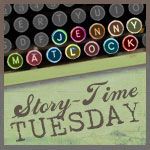I’ve been writing these weekly stories about life in Northern Idaho, as a youngster and as growing into a young man, primarily for our family. And I'm delighted to share them with you. Just between us, I’m anticipating being cranky when some whipper-snapper who may not even be born yet harasses me in 30 years or so with 'Grandpa, tell me about when you were a boy.' That will probably be after the mad cow disease has set in and erased whatever memory is left. So these are the not-so-dramatic adventures of a Baby Boomer in the 1950s, 60s and 70s.
Campaigning with Steve
Did I ever mention how I got really interested in politics? It was spring 1970 when a knock on my apartment door in Pocatello, Idaho revealed Cecil Andrus, who had announced the prior month that he was going to run for governor of that rural, agricultural state.
It was another one of those watershed events that, in retrospect, changed my life, although at the time it seemed like a way to avoid the Vietnam War for a year or two, and to take a semester off from college. I really wasn’t intending to change my life.
Back then, state-wide campaigns started about three months before the primary, and maybe nine months prior to the general elections in November. Ah, the good old days of short election cycles!

I was 21 years old and finishing my junior year at the university, studying journalism. I was slated to attend U.S. Army boot camp that summer as a part of officer training – a prospect I was not looking forward to, not at all. I knew that a summer with the Army was the precursor to being sent into the Vietnam War after graduation, sent off with a bright second lieutenant’s bar on my helmet, a bar that I had heard the enemy liked to aim their rifles at.
I had known of the Andrus family for a number of years: They lived in our neighborhood in Lewiston, and “Cece”, as he was called, was my father’s insurance agent. His daughters were somewhat younger than I, and attended the same public schools. Prior to moving to Lewiston, Andrus was a lumberjack in the woods of North Idaho and Oregon.
Andrus asked me that day to join his media staff for the campaign that summer and fall, and I jumped on it. I chatted with the local Army colonel who was bright enough to see that a summer campaigning would certainly make me better able to stare down the Vietnamese when I got into the war a year later than planned.
I joined the Andrus state-wide campaign staff in late May, after classes ended for the summer. I packed up my meager belongings and drove to Boise, the state capitol, where the Andrus group had set up their office. I found a place to live by sharing a small house with three college buddies for the summer, and eagerly reported to work.
I was assigned to the media manager, John Hughes, a Lewiston television news reporter who also took the summer off to join Andrus. The full campaign staff numbered about six, and all had Lewiston ties.
I was expecting to write press releases and distribute them, join policy discussions, and hob knob with the rich and powerful of the State. That didn’t happen.

I spent the summer driving the politician from event to event, standing in the wings to keep him on a tight schedule, and passing out brochures while the candidate was shaking hands and meeting people. We covered the state many times over that year, driving the winding mountain roads in the North to the potato fields in the East, 500 miles in each direction from Boise, piling thousands of miles on the Andrus family station wagon. We spent weeks away from “home” in Boise, campaigning in the many small towns of the state, and the few small cities, too (there weren’t any large cities then, outside of Boise’s population of 60,000, the next largest town had 35,000).
It wasn’t what I was expecting – I was anticipating an intellectual summer of influence building – but it turned out to be hard work, long days and weeks on the road, pushing a candidate , listening to his frustrations and joys, and being a good sport about everything, no matter the circumstance.
We typically stayed in people’s homes while traveling, to save precious campaign funds. We ate in more cafes and diners than you can count, and I think we attended all the county fairs and rodeos in the state that year – all 44 of them.
When we drove into any of the small towns where we stopped, typically a local supporter had arranged for a “meet and greet” gathering, where ten to a hundred people might have gathered to meet and hear the candidate Andrus. We would always run the candidate to the local radio station, stop at the local daily or weekly newspaper for an interview and to plant a few prepared photos, then move on to the next town, the next event. We would find the local television station too, if the town had one (there were only about five TV stations in the state, then).

The staff back in Boise would arrange our schedule to the minute, while banging out press releases, organizing supporters, and mailing thousands of letters and promotional material.
Andrus had won the primary election early in the year, and we were in a tight race to unseat the incumbent governor, Don Samuelson. This was the second time Andrus ran for governor, losing to the same Mr. Samuelson four years earlier.
We won that election of 1970, beating the Republican governor by five percentage points, in what was historically a conservative, Republican state. Andrus was the first Democrat elected in that state in decades, and he went on to win four terms over the next 20 years. He also served as Jimmy Carter’s Secretary of the Interior.
From my viewpoint, that election campaign changed many things in my life, and changed my destinies: Instead of accepting a job on the new governor’s staff, I returned to college the next semester to get my degree (it turned out to be two degrees, as the University gave me a lot of credits for working on that campaign, no doubt to impress Andrus and keep their state budgets well funded). The campaign experience delayed my entry into the Army by a year, and hence I was not sent to Vietnam as that war was winding down. That campaign created a love of observing politics, which helped drive my future media career which is still on-going. And that campaign experience gave me the confidence to run for public office 12 years later.
It’s funny how fate can intervene in life – my decision to go to the particular university I did, a decision to chair a college convention one year that as a result, lead to the Andrus campaign offer – decisions that are made today that really do have unintended consequences, good and bad, years later.
(c) 2010 Stephen J. Matlock. This publication is the exclusive property of Stephen J. Matlock and is protectedunder the US Copyright Act of 1976 and all other applicable international, federal, state and local laws. The contents of this post/story may not be reproduced as a whole or in part, by any means whatsoever, without consent of the author, Stephen J. Matlock. All rights reserved.




















5 comments:
Seemingly unimportant decisions that have life-long consequences - it sounds like your life was set on its path when you made that university choice.
I was glad to read that your candidate won that long-ago race. I'm sure that early participation in a successful campaign set you up for future willingness to extend yourself in ways that your peers might have found daunting.
One might call that a pivotal decision. Isn't it strange how one decision can influence a lifetime!
I am so glad you got to stay in the U.S another year.
I agree with Pondside on this. So what happened when you ran for public office??
You are one interesting guy and have a very full life to share with your grandchildren. Thanks for sharing with us too, I've found our journal riveting.
Politically speaking; I had a Jimmy Carter bumper sticker on my car when I was 18, first year I voted. We live on a wilderness ranch in Idaho during the summer. Our cabin was on the Middle Fork of the Salmon River. Jimmy Carter and his family as well as many of the Kennedy's floated the river during the years and I got to meet and spend time with them all. I was even on the news welcoming Jimmy Carter and his entourage, wife and daughter Amy to our ranch, "Pistol CreeK". Later that year, at home in California, my brother offered to wash my car (very unprecedented) and of course I said yes. Funny - my car came back without that bumper sticker. Probably unrelated but, It was the last time I voted for a Democrat. Funny how fate intervenes in your life.
Post a Comment